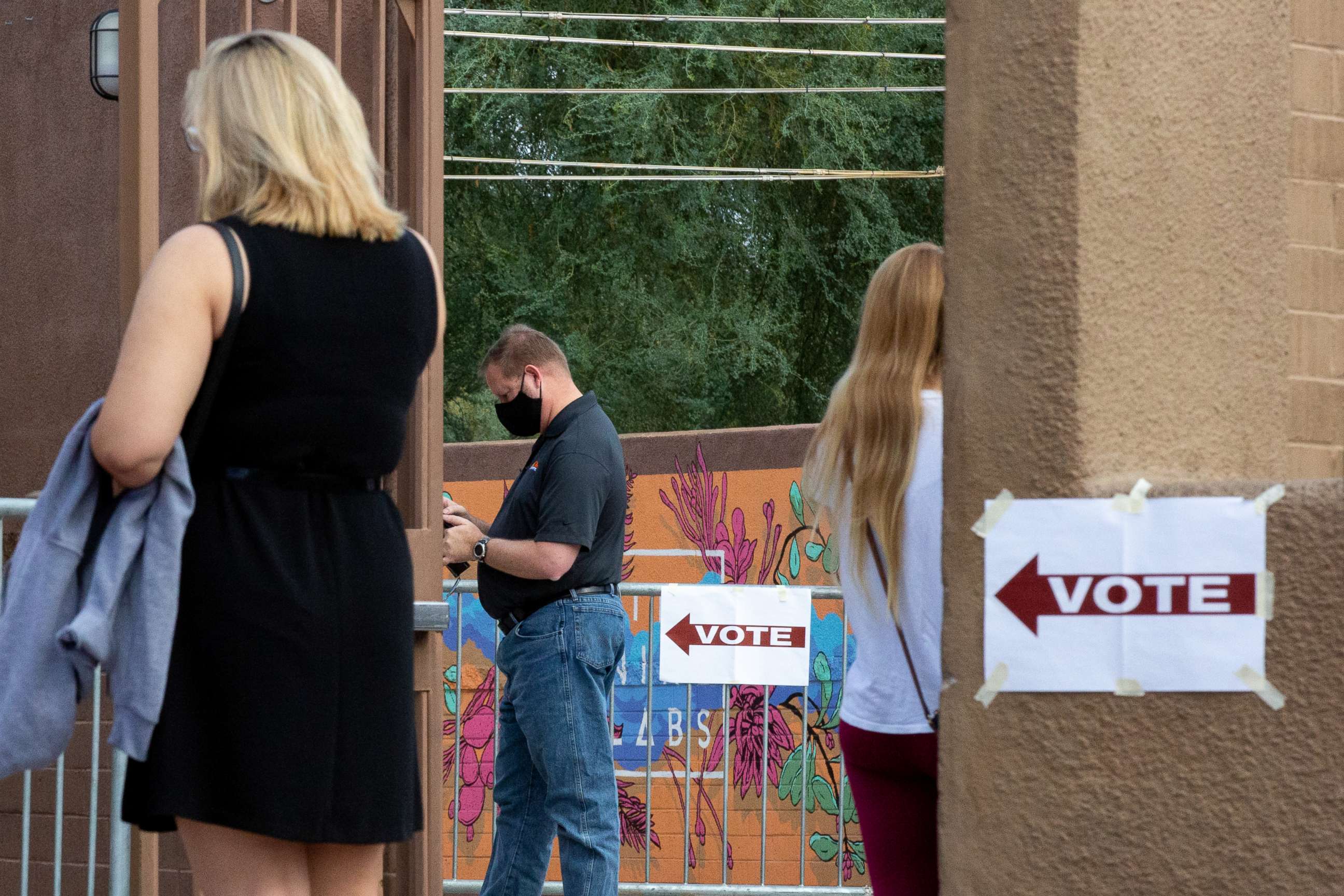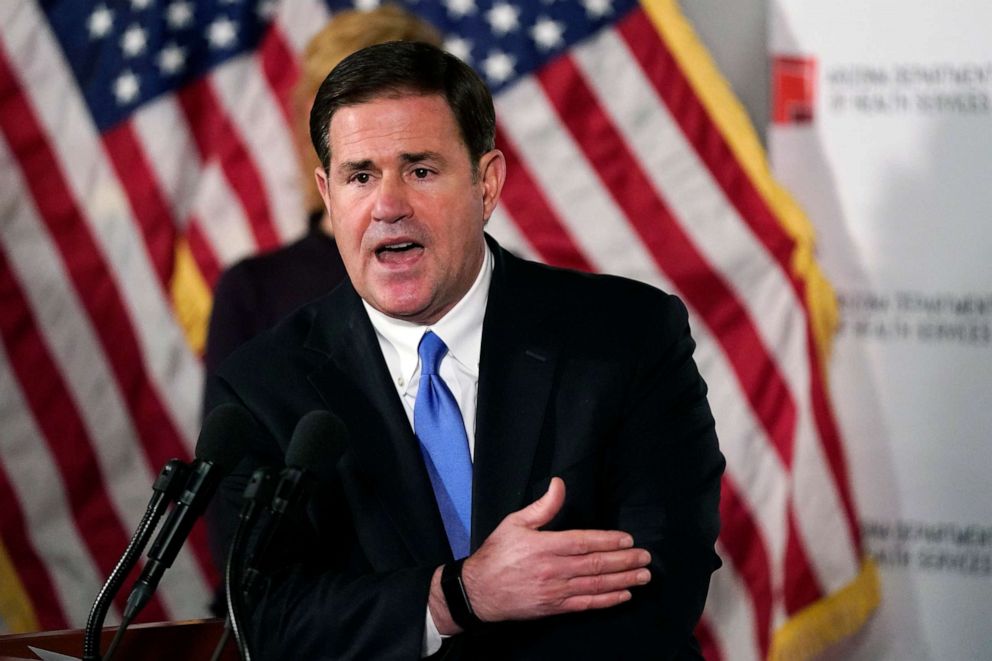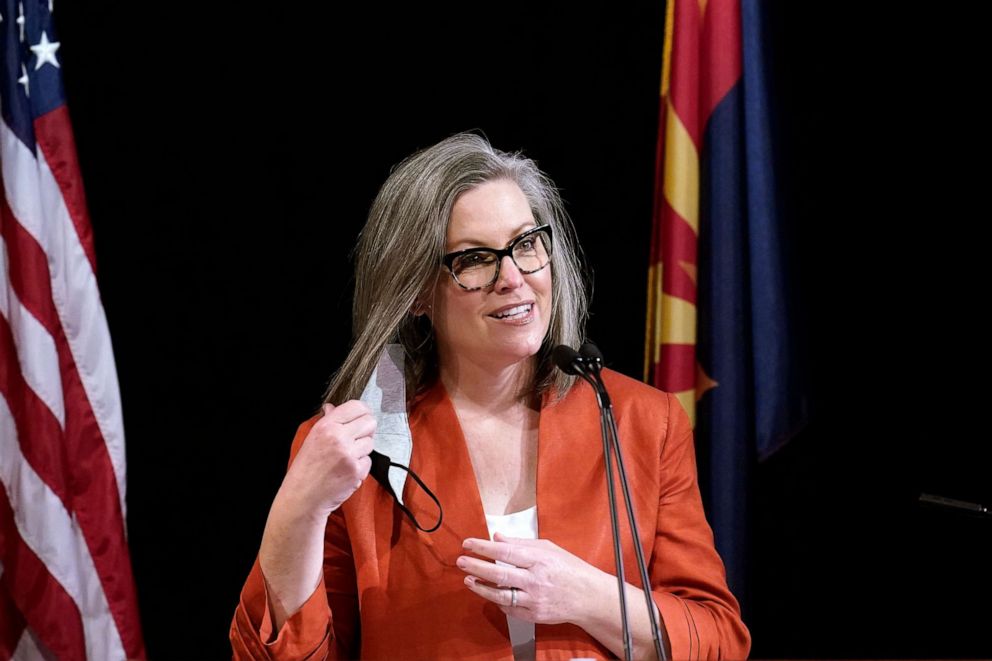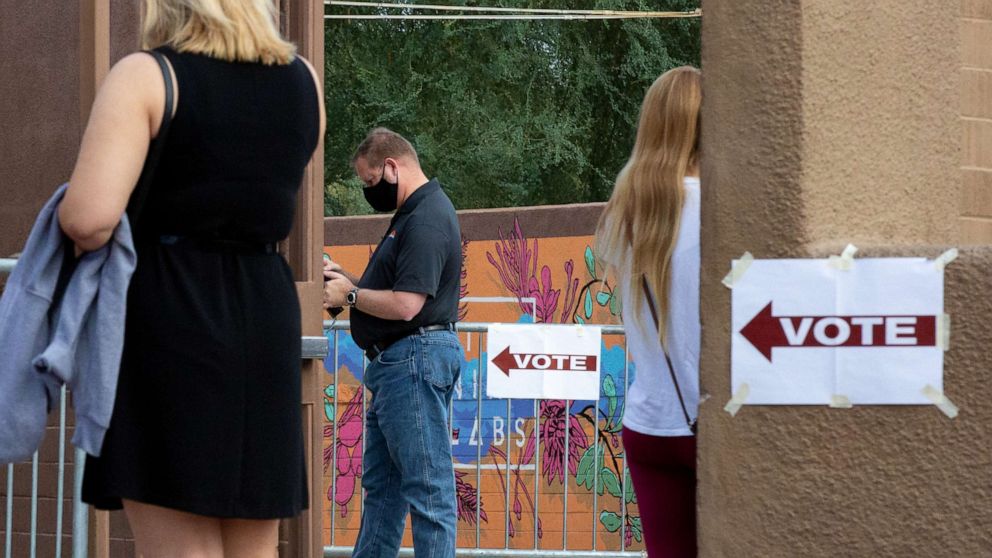Bill to purge early voting list unexpectedly fails in GOP-controlled Arizona Senate
A bill designed to change how Arizona's early voting list works was voted down in the Republican-led state Senate where it was originally expected to pass.
SB 1485, would have dissolved the word "permanent" from references to the state's early voting list, ultimately removing people from the list if they did not use it to vote within a certain time period.
It failed in the Republican-controlled Senate Thursday on a vote of 14-16.
GOP Sen. Kelly Townsend voted against the legislation because she said she wants to wait for the results of a Republican-mandated audit of Maricopa County ballots in order to determine if additional action on election-related matters is necessary. Until that audit finishes, she said she won't vote in favor of any election-related bills.
"I mean it when I say I am committed to fixing the problems in this election system in Arizona, even if it means my name is in red on this board," she said.

The bill's sponsor, Sen. Michelle Ugenti-Rita, said Townsend's 'no' vote was part of a "temper tantrum," because her election-related bills were not the ones which ultimately ended up being successful in committees.
"It's certainly disappointing to take such a stark turn when someone purports again to care about election integrity, perhaps it's just a game and just for show," Ugenti-Rita said. "So the member who is voting 'no' now, voted for it twice on two occasions, has never once talked about an amendment or language in the bill that would be of a concern."
Townsend said that she made her position clear to members behind the scenes.
"I have communicated to the whip, to the caucus, that I am not going to be voting for any election integrity bills from this point forward, until after we have results that come from the audit," Townsend said. "It is incumbent upon us to be patient and to wait. And to look and see what this audit produces, otherwise we're doing it for no reason."
"And you guys can say it's a temper tantrum -- absolutely I'm upset about all of my election bills dead, absolutely I'm upset," she added. "You want to see a temper tantrum? I can show you one if you really wanted me to."

It was unclear if Republican Gov. Doug Ducey would have signed the voting list legislation into law. Ducey came under fire from former President Donald Trump in the weeks following the November election for his refusal to entertain the idea of overturning the election results. He said at the time that "we do elections well in Arizona."
The Republican-led audit in Maricopa County is the result of months of court action by Arizona Senate Republicans, who eventually were able to obtain the county's ballots using their Senate-provided subpoena power. The non-partisan observers of the audit are from One America News Network, a far-right broadcasting outfit, and the audit was reportedly funded in part by Trump ally Lin Wood, who allegedly gave $50,000 to the effort, according to Talking Points Memo.
The audit consists of a hand-count of all of the county's 2.1 million ballots, which will likely take months. The county has already done two different audits of the results and found no irregularities.
Arizona lawmakers are part of a nationwide effort to rollback access to the ballot box after the 2020 election, when President Joe Biden won the state by over 10,000 votes and Arizonans elected a second Democrat to the U.S. Senate. It's the first time in almost 70 years two Democrats represented Arizona in the U.S. Senate.
Republicans there have introduced 23 bills which would in some way restrict access to the ballot or alter the way elections are run. Ducey recently signed a bill which banned the use of private grant money to help fund putting on an election.
According to Democratic Arizona Secretary of State Katie Hobbs, 75% of Arizonans are members of the permanent early voting list and 80% of Arizonans used the early voting mechanism to cast ballots in the 2020 election.

Under current law, any Arizonan can ask to be added to the state's permanent early voting list (PEVL) in order to receive a mail ballot. If a voter requests to be removed or their status becomes inactive or canceled, they can be removed.
The bill would have sought to remove voters from the list if they do not use it to vote in two consecutive primary or general municipal, legislative, statewide and federal election cycles.
Even after it was clear the bill would fail on Thursday, Republican Sen. Sonny Borrelli voiced his support for it.
"If you have a voter that is disengaged and has not voted for several election cycles -- ah, excuse me -- but this is actually fiscally sound, because you're saving your county taxpayers money and not sending out ballots that don't need to be sent out," Borrelli said. "This is smart legislation. There's nothing nefarious here. It's a simple, smart, prudent legislation and very even-handed regulation."
Democratic Rep. Raquel Terán said in debate Tuesday night that it could potentially remove close to 30,000 of the state's Latino voters from the list.
"The number could be as high as 145,000 voters," Terán said of the overall number of voters who would have been removed from the list had it been passed before the 2020 election.
Business leaders in Phoenix penned a letter to Arizona lawmakers at the beginning of April, urging them to vote down SB 1485 and other bills which would make it harder to vote, such as one which would require new further identification when voting absentee.
"These proposals are a concerted effort from those in Arizona -and across the nation- who wish to sow additional doubts about our elections in the minds of voters, and feed into the paranoia that has plagued our political discourse over the past several months," they wrote. "These measures seek to disenfranchise voters. They are 'solutions' in search of a problem. They are attempts at voter suppression cloaked as reform - plain and simple."
Democrats sounded alarms over those concerns.
"Major sports are withdrawing from states that … infringe on the freedom to vote," Rep. Athena Salman said Tuesday, before pointing to the 2023 Super Bowl, which is set to be held in Arizona.
"It's not hard to imagine the outcome if this bill goes back to the Senate," Salman continued. "If the governor signs this into law ... potential economic opportunities that I think are very important to Arizona (will be lost)."




